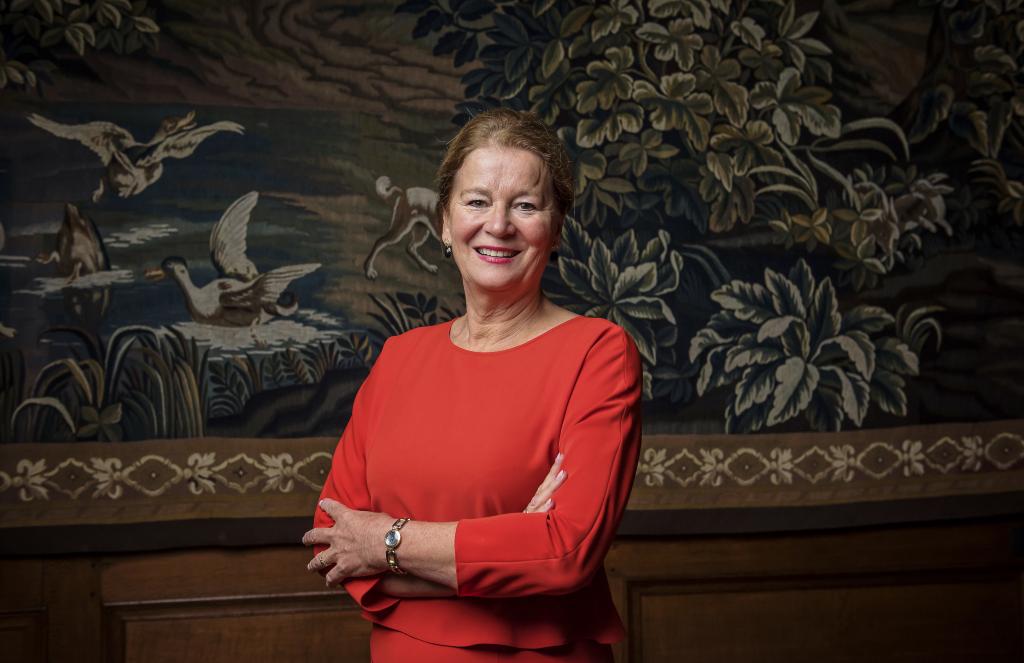Thessaloniki gets ready for its metro launch in November
The underground rapid transit lines have been under construction for almost two decades due to various project delays
 TheMayor.EU logo
TheMayor.EU logo 
Annemarie Penn-te Strake, Mayor of Maastricht, Netherlands, Source: Annemarie Penn-te Strake / Municipality of Maastricht
Ahead of International Women’s Rights Day, we speak with Annemarie Penn-te Strake, Mayor of Maastricht, Netherlands
I was born in 1953 and have been the mayor of Maastricht since 1 July 2015. Between 1987 and 2006, I worked at the Judiciary where I started as a deputy judge and later served as a judge.
In 1998, I was named vice-president of the court of law in Maastricht and two years later I became the coordinating vice-president. In 2006, I became the chief public prosecutor of the Maastricht District Court Public Prosecutor's Office.
In 2012, I joined the Board of Procurators General at the Public Prosecutor's Service in The Hague.
As mayor, I am responsible for Integrated Safety and Public Order, Regional and Euregional Cooperation, Public Affairs, Lobbying, Communication, Supervision and Enforcement, and Traveller Site Issues.
No, I hope not. I don't think the fact that I'm a woman has had a positive or negative impact, it's about quality, your personality and how you see yourself.
A little more could be done, I see a lot of men involved in important discussions, but women in the press could also make a greater contribution to the debates. We may always do more.
Men and women both add something. Women can contribute to tackling problems on a global scale making use of their specific strengths and characteristics. Women have a nice balance between head and heart. But it's always a question of mix.
Where important decisions are made, the population is what counts. Women are different from men, they have a different way of making decisions and judgments, which is why the balance is so important.
Maastricht has got women in the city council and the municipality and the mayor is female. Our civil service is also a reflection of society.
We are tackling sexual harassment. We do this in the area of prevention and repression. There is no policy to get women specifically in certain positions, that would not be correct either.
A typical day for a mayor does not exist. I am, for example, chairman of the council and the college, police and security authority, figurehead, mayor for our residents. In addition, I am committed to cooperation in the region and Euregion. Every day is different.
Start by being interested in what is going on in society. Ask yourself if you are really interested in that. See if you feel the urge to contribute to solving problems. Then look for parties that match your ideals. This is possible both politically and organisationally in modern society.

The underground rapid transit lines have been under construction for almost two decades due to various project delays

Now you can get your wine in Talence by paying directly in Bitcoin

That’s because the state has to spend money on updating the railway infrastructure rather than subsidizing the cost of the popular pass

Rethinking renewable energy sources for the urban landscape

The examples, compiled by Beyond Fossil Fuels, can inform and inspire communities and entrepreneurs that still feel trepidation at the prospect of energy transition

Now you can get your wine in Talence by paying directly in Bitcoin

The 10th European Conference on Sustainable Cities and Towns (ESCT) sets the stage for stronger cooperation between the EU, national and local level to fast track Europe's transition to climate neutrality.

At least, that’s the promise made by the mayor of Paris, Anne Hidalgo

The underground rapid transit lines have been under construction for almost two decades due to various project delays

At least, that’s the promise made by the mayor of Paris, Anne Hidalgo

Hostal de Pinós is located in the geographical centre of the autonomous region

Despite its church-y name, the district has long been known as the hangout spot for the artsy crowds

Urban dwellers across the EU are having a say in making their surroundings friendlier to people and the environment.

Forests in the EU can help green the European construction industry and bolster a continent-wide push for architectural improvements.

Apply by 10 November and do your part for the transformation of European public spaces

An interview with the Mayor of a Polish city that seeks to reinvent itself

An interview with the newly elected ICLEI President and Mayor of Malmö

A conversation with the Mayor of Lisbon about the spirit and dimensions of innovation present in the Portuguese capital














